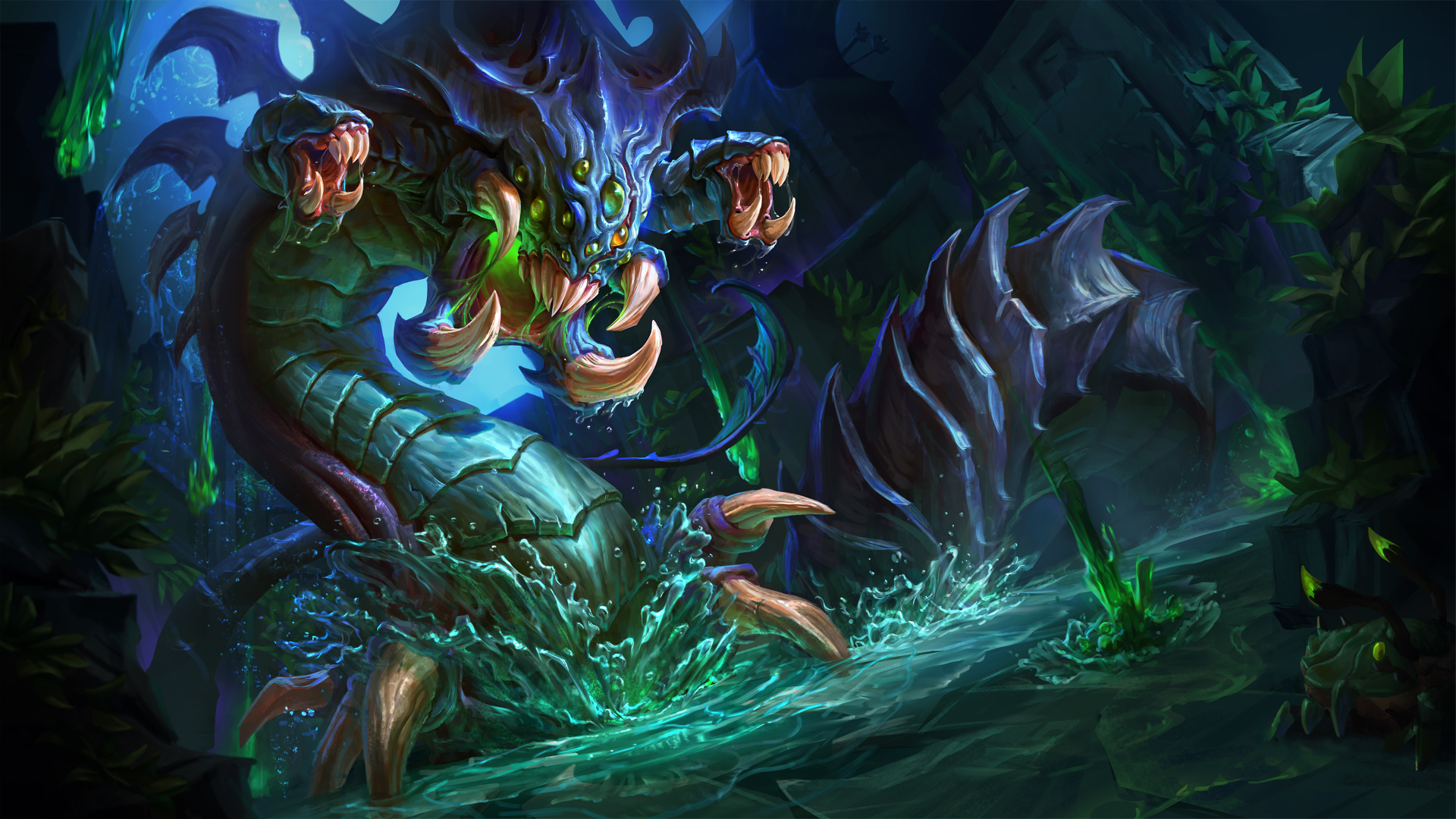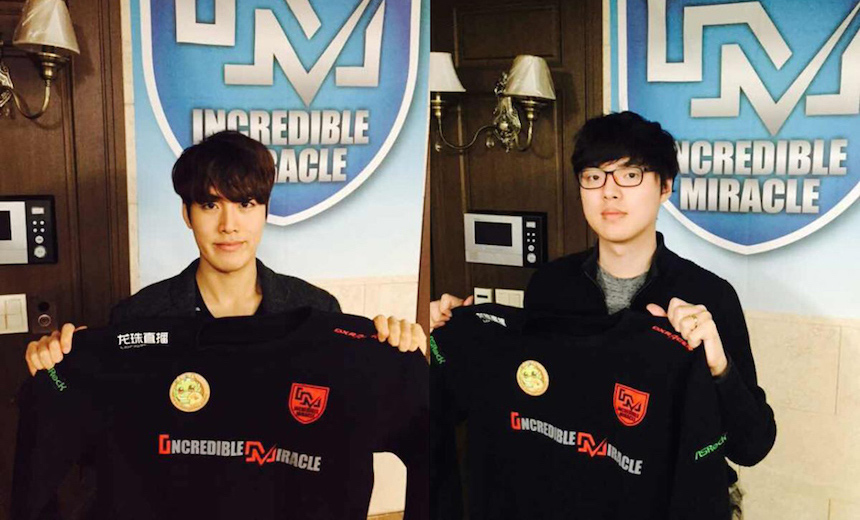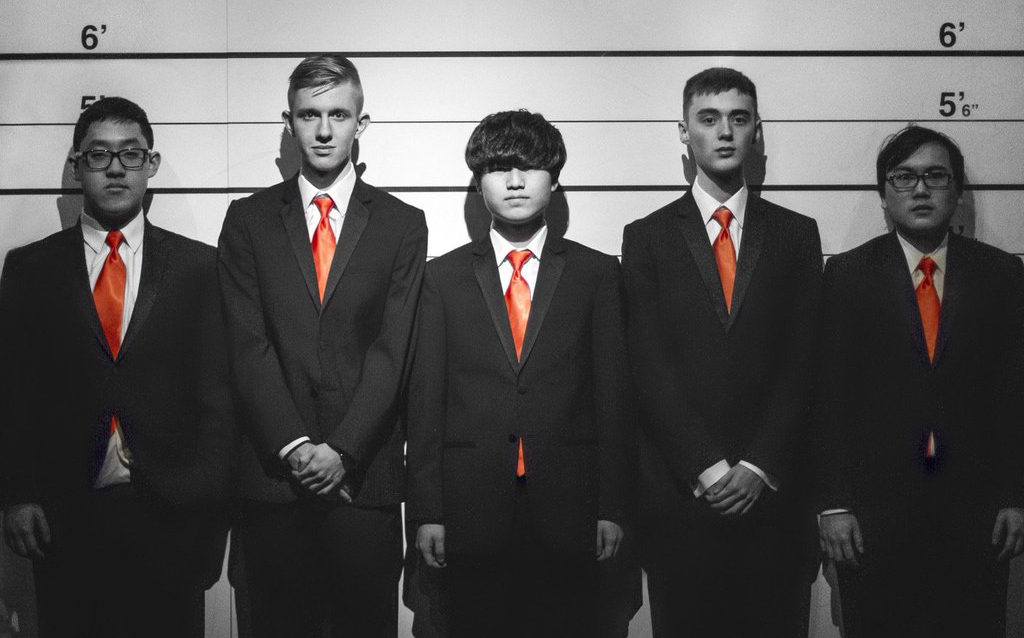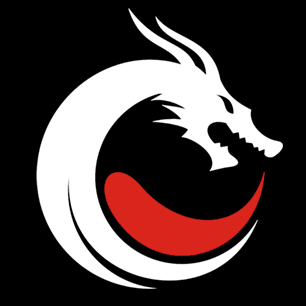New narratives for League of Legends in 2016

2016 is here, and the waiting's (nearly) over. It's time for yet another season of esports—yet another year of demolished towers, Baron throws, and unnecessarily public team drama. For now, though, the drama can take a breather: after a busy rumor-filled off-season, the rosters have finally been locked down and confirmed across the premier regions. We now have the basic seeds of this year's narratives—and because of what's been going on in the months between Worlds and now, it's shaping up to be a very exciting year indeed.
In case you're not an obsessive esports fan that's been breathlessly tracking every trade, swap and rumor, here's a few quick summaries on what to expect as we enter the spring split. Let's start with familiar grounds: no, this isn't the year that the Korean Juggernaut finally topples. Instead, their imperious rule over top-level League of Legends seems even more solid than ever.
Prodigal sons

China did Korea two favors: first, it convinced a lot of players that there really is nothing like home after all. After a year of complaining about everything from cultural differences to food preferences, a number of high-profile players that were once considered the top of the 2014 class are making it back home. Most notable of which is LongZhu Incredible Miracle's "new" top laner Flame—once considered the world's premier top laner two years ago, only to find himself as an overpaid substitute in China's LGD roster.
Their second favor was convincing Korean teams to actually pay for talent this time around. To avoid mincing words: KeSPA salaries were, for a very long time, near-criminal except for rare breakout players like Faker. LongZhu IM even tacitly acknowledges their misdeed by promising to throw together whatever resources they need to actually have a competitive team—and to the shock of everybody used to three years of them floundering around just outside of playoff range, they seem to actually mean it this time!
It isn't just Flame. It's Coco too. It's former CJ Blaze AD carry Cpt Jack—he of the immaculate Cleanse dodges—coming out of retirement, and Chaser spearheading the jungle. Somehow, they've managed to put together a team worthy of high expectations. While SKT T1 looks to remain dominant, both domestically and abroad, it looks as if they'll actually have to fight seriously for the domestic title this year.
Of course, it's not all good news. Em-Fire (recently dropping the "Najin" name in hopes of a new title sponsor) is... a harsh disappointment. Whether by their monikers as Shield or Sword, Najin used to somehow always find themselves at Worlds despite never actually being thought of all that highly. But they were contenders, and consistent enough in their split-to-split placement to beat out flash-in-the-pan teams, cuing half-joking accusations that the games were rigged so that Watch's photogenic mug can once again represent South Korea on the world stage.
By and large, [Em-Fire] has made a clean split with its past, and must start afresh again in cultivating its talents.
Except that Watch isn't on the team anymore. In fact, none of the stalwarts of yesteryear are on the team now. The players on the current lineup are either fresh out of solo queue, or were lurking around in everybody else's substitute roster in the last year or so. By and large, the organization has made a clean split with its past, and must start afresh again in cultivating its talents.
Keep up to date with the most important stories and the best deals, as picked by the PC Gamer team.
Many (such as I) wish they'd just bought out Ever instead. The team that beat out SKT T1! The team that won IEM! ...and the team that failed to make it past LCK's Challenger promotions last time. True, SKT T1 didn't prepare at all for their match (like in 2013, when they lost the World Cyber Games qualifiers to CJ Entus—a match that took place almost immediately after they got back home from dominating Worlds the first time around). True, post-Worlds IEM doesn't actually suggest that much competitively (Team Solomid fielded a squad that had all of three days to get to know each other, much less practice and enact strategy). Yet Ever nonetheless proved serious adversaries in the few matches they had together—only for it all to be for naught as mid laner Athena gets snatched up by a talent-desperate China, and the rest of the team dropped back into Challenger.
Not every story has a happy ending, unfortunately. Rebel Anarchy might have finally found a sponsor with streaming service Afreeca (and MickeyGod no longer playing solo queue with the name "Please sponsor us!" to advertise their plight), but it seems like the Ever that dazzled us in the preseason is never getting back together.
The American way

Speaking of money getting thrown around: North American esports has reached a milestone. It's finally garnered enough attention (and sufficiently undercut the youth viewership demographic) of mainstream sports organizations to warrant them opening their pocketbooks. Whether it be Sacramento Kings' owners doling funds into NRG Esports, or LA Lakers' Rick Fox snapping up Froggen to play on North American soil, there's been a sudden influx of celebrity and corporate interests—and more besides.
I know of at least three or four coverage sites proclaiming their intent to be the "ESPN of esports," and ESPN actually is one of them. But even the organizations that have been involved for the long haul, instead of the new wave of opportunists taking advantage of the "next big thing," have been making serious upgrades. I wrote before about NRG's talent pickup including not just players but coaches and analysts too (Charlie, unfortunately, was recently dumped), but Team Liquid—that most venerable of North American esports brands—took it a step farther. They're now fielding a full 10-player roster—5 starters, 5 fully interchangeable and registered substitutes, as opposed to an LCS team and a Challenger team.
Undoubtedly, that was an expensive and laborious roster to cobble together. But while the official lineup looks less promising than their peers on TSM, CLG or others, the strategic implications are immense—there hasn't been a team or organization able to do fully in-house training and strategic work since before "sister" teams were banned out by Korea's LCK. That system also happened to foster the most singularly dominant run at Worlds yet, with Samsung Blue and White leaving smoking ruins of the competition behind in their wake. Much depends on how deftly Liquid's staff manages their resources, but the very worst they can expect is to have a steady continuity of improving talents instead of the mad preseason scramble of every year prior, throwing apart the earnest efforts of the months before. Given that much of a team's success is founded on internal chemistry, they now have the opportunity to fully iron out the wrinkles, while making sure that there isn't any one failure point in the team.
It might even take a lot of luck [for Team Impulse] not to get relegated outright in a few months.
Then there's Team Impulse, whose decision not to sell their LCS spot definitely seems impulsive in comparison. The former rookie darlings did not mature well, losing all of their Chinese lineup that made them famous in the first place. Their current roster shoves Gate from a promising mid lane position down to support, assisting former Coast player DontMashMe, while picking up a seemingly random assortment of players from around the world. Jungler Procxin, for instance, was last seen on Japan's DetonationFM—where he played all of a handful of greedy Nidalee games before getting replaced.
The odds are very, very long indeed for TiP to do more than scrape by this year—not in the face of the ludicrous resources thrown around by their erstwhile rivals. It might even take a lot of luck not to get relegated outright in a few months. Especially when even the Challenger scene is outspending them.
In the shadows
There is a lot going on in Europe and China too—and even here in Taiwan, where Jay Chou (yes, THAT Jay Chou) is expected to announce the lineup for his newly established esports organization MRJ (my bet: Deft Carry, whose jungler and mid laner SpeaR and JeffeRy respectively did an admirable job in the qualifiers). But in light of recent news, I think the last of the three spotlights this time deserves to be cast upon North America's Challenger scene, of all places.

Team Dragon Knight is an ill-fated team: visa issues plagued them during their stint in the NA LCS, preventing them from playing at full strength until it was far too late to escape relegation. Glints of promise shined through at the very end, only for it to be smothered out as teams snatched up promising players and the remaining players docked for playing fast and loose with recruitment/poaching bylaws. But there is every reason to expect them to return in the summer—the most prominent of which is their new AD carry.
To loop around back to Korea, Ohq was the best thing on Najin's old crew—the 19 year old bot lane carry was easily one of the most promising talents of the newest generation of LCK players, and expected to only get better with time. For him to find his way onto American soil instead, as a Challenger contender, is both a massive disservice to the LCK and an equally massive boon to North America's talent pool. While it's disappointing not to see him in the LCS proper (at least, not yet), his inclusion in the race for the summer promotions means that it'll be worth tracking the "lesser" teams this time around.
Get that popcorn ready. We're going to have a lot of good games this year.

PC Gamer Pro is dedicated to esports and competitive gaming. Check back every day for exciting, fun and informative articles about League of Legends, Dota 2, Hearthstone, CS:GO and more. GL HF!

